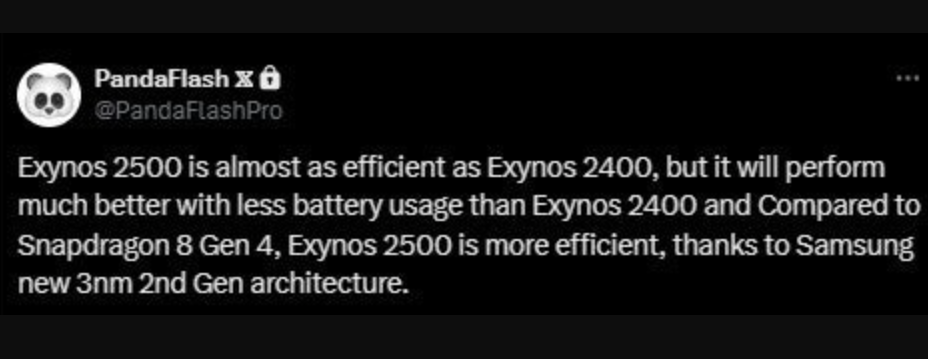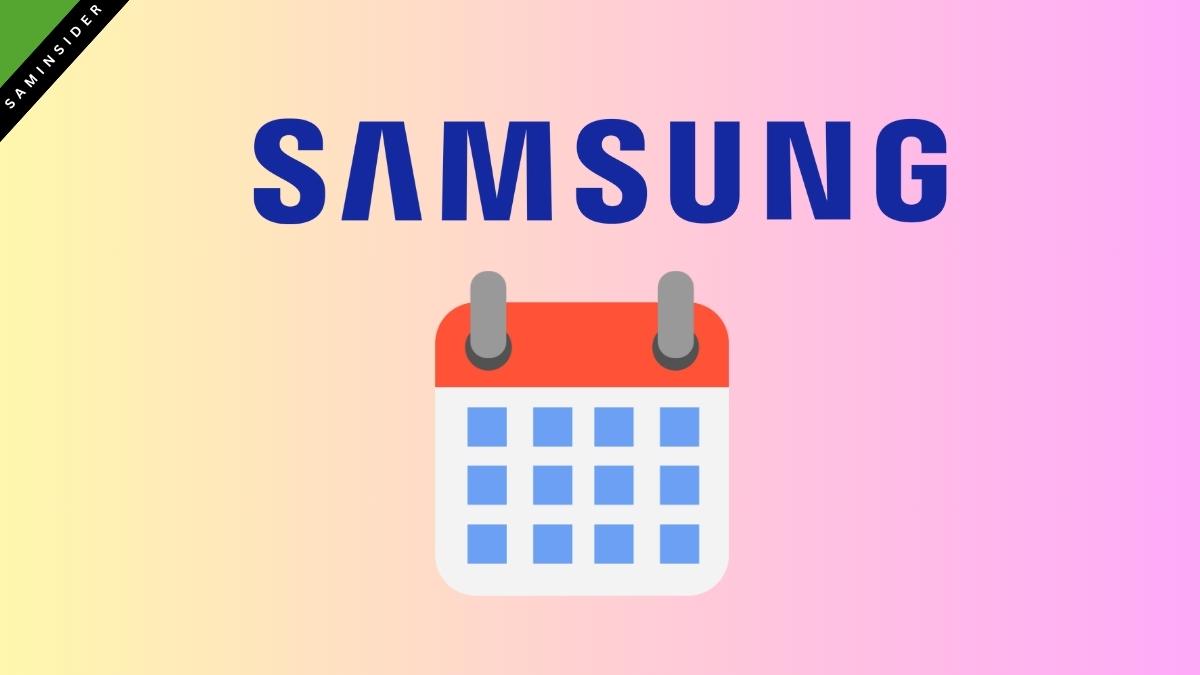It is no secret that Samsung’s in-house Exynos chipsets have recently struggled to compete against Qualcomm.
The Exynos 2200 was a weaker, less efficient version of the already-terrible Snapdragon 8 Gen 1 from 2022, and the Exynos 2300 was never released.
However, the new Exynos 2400 chipset used on the Galaxy S24 series finally brings good efficiency gains. It gets closer to what Qualcomm offers with the Snapdragon 8 Gen 3 due to its advanced chip packaging process and improved 4 nm fabrication.
To keep this positive trajectory going, Samsung plans even bigger leaps with the Exynos 2500, and new information details important changes.
According to a leaker (via @PandaFlashPro on X/Twitter), the Exynos 2500 aims to be more efficient than the Snapdragon 8 Gen 4. This is supposed to be achieved by fabricating it on the 2nd generation 3 nm node at Samsung Foundry.
Samsung Foundry’s second-generation 3 nm technology has long been said to be quite promising as it uses GAA transistors instead of the FinFET transistors used by TSMC’s 2nd gen 3 nm process.
In simpler terms, GAA stands for Gate-All-Around, and here, the transistors wrap around the channel on all four sides. On the other hand, FinFET is supposedly inferior to GAA as the transistors cover the channel only on three sides.
It has therefore been theorized that Samsung’s 3 nm GAA transistors, which could be used on the Exynos 2500, will be able to control power leaks and drive electric current better than the likes of Snapdragon 8 Gen 4 and Apple’s A18 Pro, making the Exynos 2500 a more efficient chip than the latter two in the process.
However, the major problem with Samsung has been the yield rates, which were rumored to be an abysmally low 20% for the first generation 3 nm process but have supposedly been bumped up to a much better 60% yield rate for the second generation. This was claimed by the known Samsung tipster Revegnus on X/Twitter a while ago, but his account has since mysteriously disappeared.
However, these are all just leaks and speculations, and Exynos chipsets are notorious for being all-show in leaks and no-go in real life whenever they come out. So, taking all such leaks with massive dollops of salt is advised until the Exynos 2500 is released on the Galaxy S25 series next year.
We will then also be able to see how it compares to its competitors, the Qualcomm Snapdragon 8 Gen 4, the MediaTek Dimensity 9400, the Google Tensor G4, and the Apple A18 Pro.







